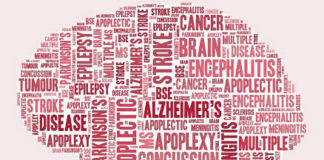Tag: brain disease narrative
Allen Frances: Still Spinning the Story
Allen Frances' latest article: There are problems in the psychiatric field, but none of these problems can be blamed on psychiatry. But the spurious promotion of psychiatric "diagnoses" as real illnesses, and the routine prescribing of chemical and electrical "cures" were and are psychiatric inventions.
Real Doctors Are Peddling Fake Diseases: Here’s How to Spot Them
We’re bombarded with ads for newly discovered diseases. Are they all legitimate, or are some sham illnesses that were created to sell more drugs? Here are four ways to logically test whether or not something really is a classic (physically-based, symptom-causing) disease.
Are Mental Disorders Brain Diseases ‘In Waiting’?
Proponents of the idea that mental disorders are brain diseases argue that even though we may not have discovered the underlying pathology of mental disorders like schizophrenia or depression yet, surely we eventually will? Mental disorders, on this view, can be thought of as brain diseases ‘in waiting.’
What if the Folly is in Us, Too?
Faced with behavior different from our own or from our expectations, all of us feel that urge to “do something”—an act that is one of the beginnings of prejudice, a malignant virus that all of us have trouble shaking free of. We doctors, especially, want to do something: It’s what we’ve been trained to do.
Viewing Addiction as a Brain Disease Promotes Social Injustice
From Nature: There is virtually no scientific evidence indicating that addiction is a disease of the brain. Yet, the disease model of addiction is used...
Rejecting the “Medications for Schizophrenia” Narrative: Part II
In this second article, I will further analyze the reasons why the unevidenced biological-illness approach to “schizophrenia” has become so entrenched in our society. Most importantly, I will discuss hopeful alternatives.
Rejecting the “Medications for Schizophrenia” Narrative: A Survivor’s Response to Pies...
As a psychiatric survivor who has personally experienced severe psychosis, my criticisms focus on the relative lack of attention to what psychiatric drugs actually are, and on the uncertain, contested nature of the supposed target of these drugs: “schizophrenia.” I will elaborate on each of these points with references, as well as highlighting alternative approaches to helping psychotic people.















